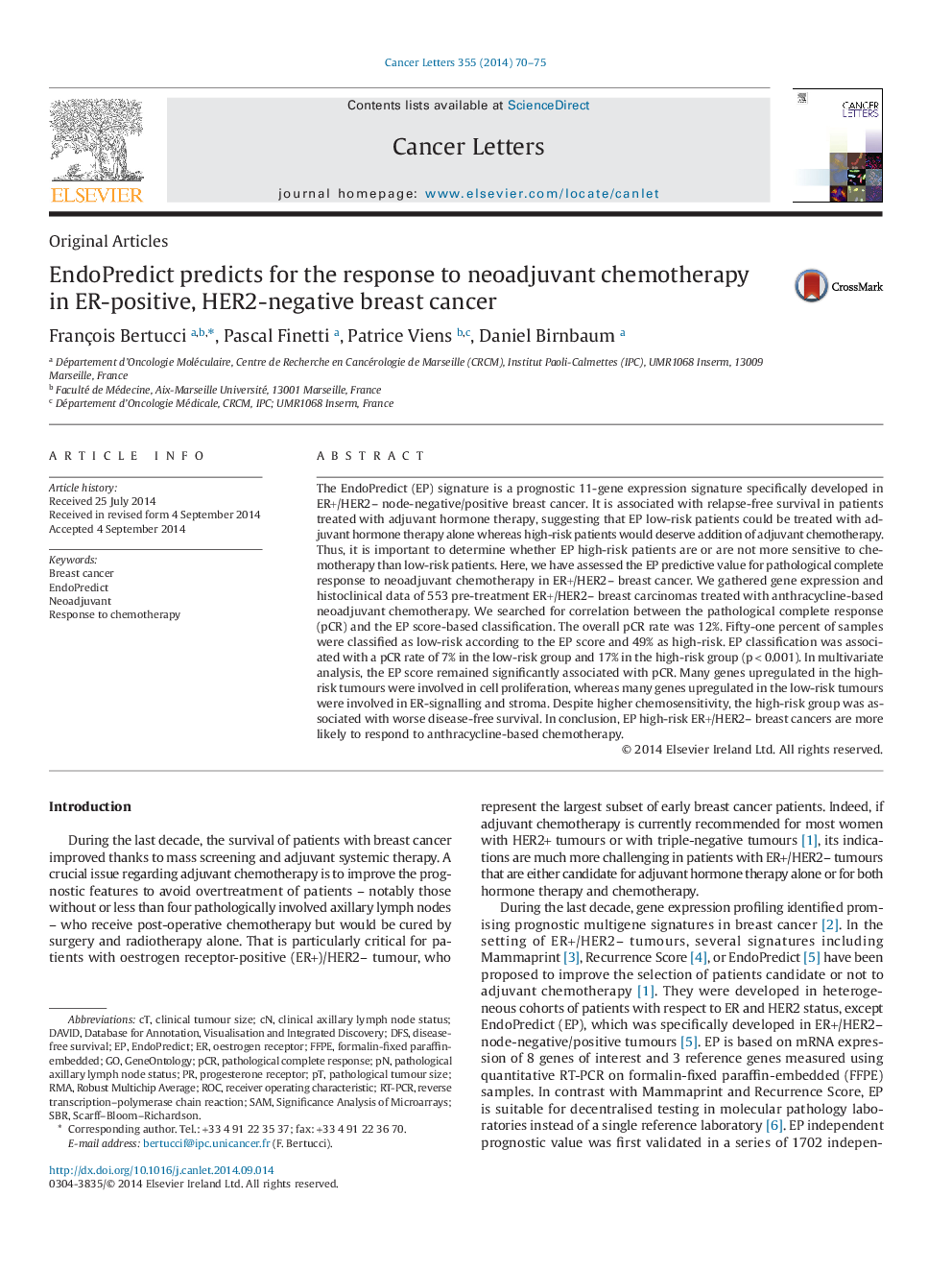| Article ID | Journal | Published Year | Pages | File Type |
|---|---|---|---|---|
| 10899649 | Cancer Letters | 2014 | 6 Pages |
Abstract
The EndoPredict (EP) signature is a prognostic 11-gene expression signature specifically developed in ER+/HER2- node-negative/positive breast cancer. It is associated with relapse-free survival in patients treated with adjuvant hormone therapy, suggesting that EP low-risk patients could be treated with adjuvant hormone therapy alone whereas high-risk patients would deserve addition of adjuvant chemotherapy. Thus, it is important to determine whether EP high-risk patients are or are not more sensitive to chemotherapy than low-risk patients. Here, we have assessed the EP predictive value for pathological complete response to neoadjuvant chemotherapy in ER+/HER2- breast cancer. We gathered gene expression and histoclinical data of 553 pre-treatment ER+/HER2- breast carcinomas treated with anthracycline-based neoadjuvant chemotherapy. We searched for correlation between the pathological complete response (pCR) and the EP score-based classification. The overall pCR rate was 12%. Fifty-one percent of samples were classified as low-risk according to the EP score and 49% as high-risk. EP classification was associated with a pCR rate of 7% in the low-risk group and 17% in the high-risk group (pâ<â0.001). In multivariate analysis, the EP score remained significantly associated with pCR. Many genes upregulated in the high-risk tumours were involved in cell proliferation, whereas many genes upregulated in the low-risk tumours were involved in ER-signalling and stroma. Despite higher chemosensitivity, the high-risk group was associated with worse disease-free survival. In conclusion, EP high-risk ER+/HER2- breast cancers are more likely to respond to anthracycline-based chemotherapy.
Keywords
Robust Multichip AverageRMAROCSAMRT-PCRDFSSBRFFPEdisease-free survivalSignificance Analysis of MicroarraysDAVIDBreast cancerformalin-fixed paraffin-embeddedNeoadjuvantreverse transcription–polymerase chain reactionPCRPathological complete responseResponse to chemotherapyoestrogen receptorreceiver operating characteristicProgesterone receptor
Related Topics
Life Sciences
Biochemistry, Genetics and Molecular Biology
Cancer Research
Authors
François Bertucci, Pascal Finetti, Patrice Viens, Daniel Birnbaum,
